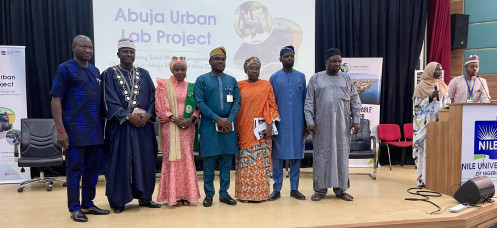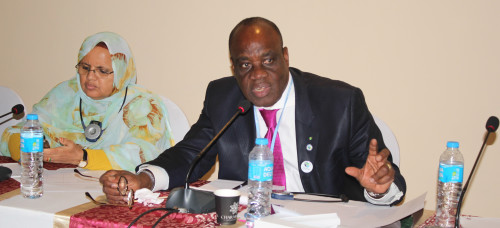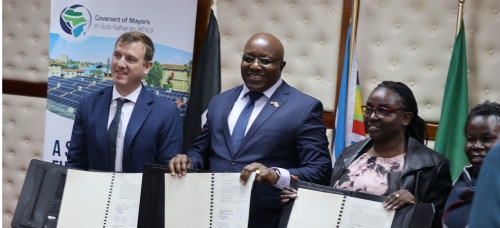Capacity Building Workshop for Portuguese Speaking Signatories
Published: 5 Oct 2019

The Covenant of Mayors in Sub-Saharan Africa (CoM SSA) initiative continues to support Sub-Saharan African cities and municipalities in their climate and energy efforts, contributing for the strengthening of their technical capacity.
From 9 to 11 September, CoM SSA promoted a capacity building workshop for Portuguese speaking signatory cities, aimed at providing members of the technical staff of municipalities the tools necessary for the development of their Sustainable Energy Access and Climate Action Plans (SEACAPs). The workshop, held in Cape Town, brought together technical staff members from ten local governments from three Portuguese speaking countries: Cape Verde, Guinea-Bissau and Mozambique. The activity was organized by CEMR, the project coordinator, ADENE, the Portuguese Energy Agency, ICLEI Africa and the European Commission’s Joint Research Centre (JRC), counting with inputs from other project partners.
In the scope of the CoM SSA initiative, local authorities are encouraged to voluntary commit to the implementation of a climate and energy action plan in their area of influence. In order to translate this political commitment into practical measures, CoM SSA signatories commit to produce, adopt and implement a strategic and operational document, the Sustainable Energy Access and Climate Action Plan (SEACAP).
During the workshop, participants were taken through the process of developing a SEACAP, using as stepping stone the guidelines provided in the guidebook “How to develop a Sustainable Energy Access and Climate Action Plan in Sub Saharan Africa”, elaborated by JRC.
The three pillars of the SEACAP were covered in detail, with Damien Gabriel, from ICLEI Africa, covering the topic of climate change adaptation and Tiago Serrenho, from the JRC, presenting on mitigation and sustainable access to energy.
The workshop had a strong focus on knowledge and experience sharing. Participants were actively involved, presenting projects being developed or implemented by their municipalities in the areas of climate change and access to energy. The presentations, and the project summary sheets cities were prepared in advance, providing the basis for the sharing of experiences between cities.
Lessons learnt from exchange with cities
The debate on the previously selected projects, involving all participants, was facilitated by Silvino Spencer and Alice Fonseca of ADENE. The discussions brought to light different approaches to problem solving, underscoring different realities, but also shared goals.
Participants expressed the need to engage with a cross cutting approach with all stakeholders and identifies 12 keys lessons learn in the process of implementation of SEACAP:
- City officials need to engage with the politicians to build political buy-in when developing projects and strategies
- Cities need to involve all potential partners and stakeholders from the very beginning in order to ensure that plans are locally relevant
- Political champions will help a project succeed
- Data collection is key but there are challenges which must be managed and it is important to find a way to unblock the hurdles to data collection
- Awareness and behaviour change are crucial within government, amongst stakeholders and communities
- Formalise and institutionalise climate change, which means working across different levels of government and authority – this will assist in preventing delays
- Institutional players protect their turf and so need to be included from the outset
- It is essential to develop the right messages so that the plans and projects are understood by all involved
- It is also essential to ensure that municipal officials have the right skills and if not develop training packages
- Journalists need to be capacitated to tell the right story and understand the issues
- Hold a line and find a way
- Show value to those who participate and engage visibly even for small actions
At the closing of the training, trainers underlined how the activity allowed cities to share best practices and gather recommendations and suggestions to tackle the challenges they face.
Participants described the workshop as “a unique opportunity for the interaction between cities, which allowed us to identify how to improve planning and project design”. They also expressed interest in maintaining contact and cooperating on the development of common projects, so to generate more impact and take advantage of synergies.





